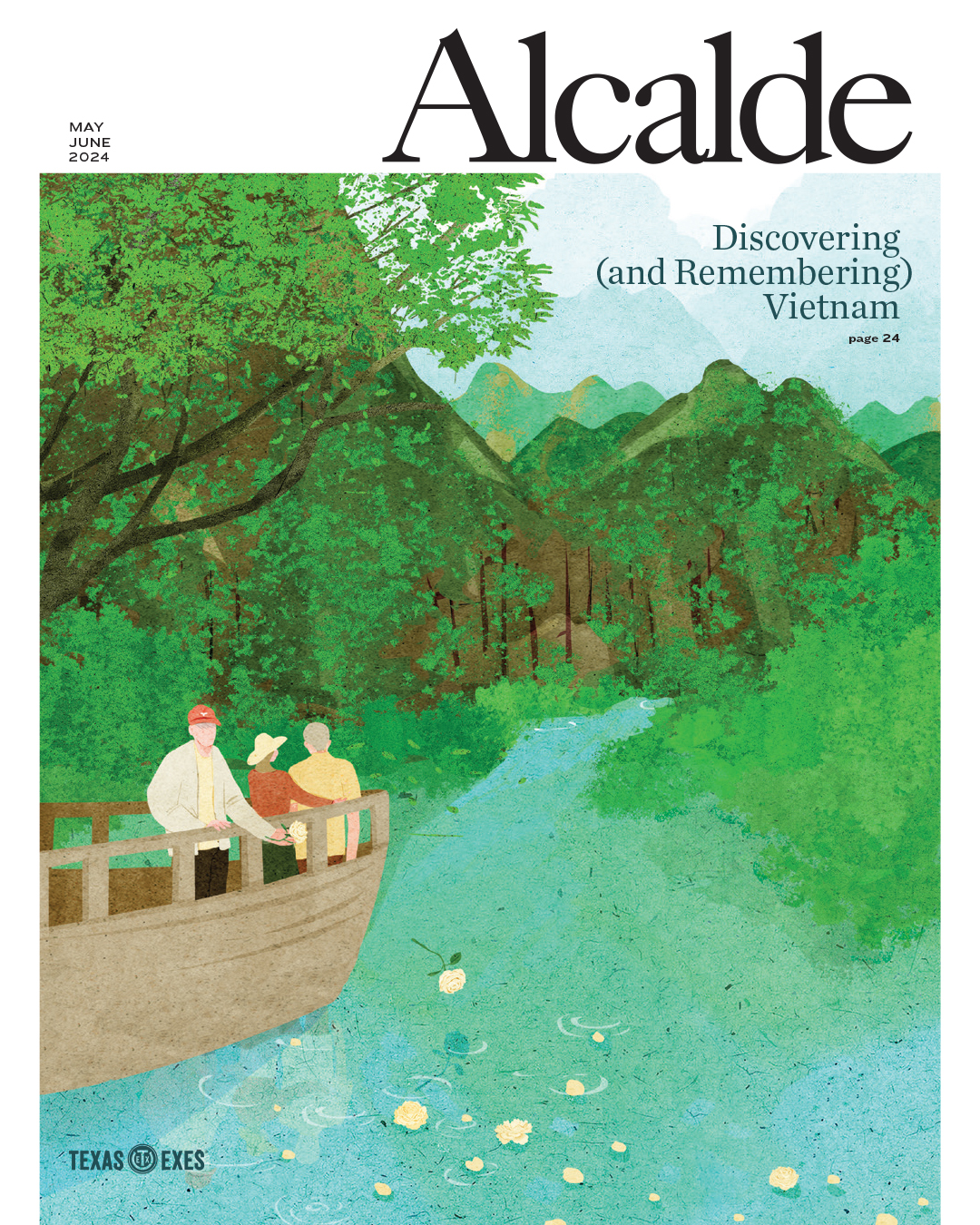New Yorker Writer Jane Mayer Talks ‘Dark Money’ at UT

“It takes a lot of chutzpah for native New Yorker to come down to Texas and tell you how powerful oil tycoons and wealthy donors are in American politics,” said New Yorker staff writer Jane Mayer on Friday morning in a theater at the AT&T Center on University Avenue. The Center for Leadership and Ethics in the McCombs School of Business invited the Dark Money author to campus to speak about how undisclosed money—aka “dark money”—influences not only elections but ideology in American politics.
Most of the 30-minute talk, followed by almost an hour of Q&A, centered on the Koch brothers, whom Mayer profiled in 2010 for the New Yorker and spent the better part of five years researching for her latest book. The Wichita-based billionaires, she said, have gone beyond merely funding campaigns, but have “weaponized philanthropy … to build not just an electoral machine, but an ideological one.” She calculates that the Kochs have spent $100 million—and likely much more in dark money—to set up nonprofits that not only fund candidates but are aimed to steep future generations in the libertarian, small-business ideology that has so benefitted the brothers.
“The advice is always, ‘Follow the money,'” Mayer said, “You can’t trace money in American politics without running into the Kochs.” Mayer has also profiled George Soros, the democratic billionaire who similarly attempted to foil the 2004 re-election of George W. Bush with an influx of cash.
It only took a few minutes for the 2016 election to come up. Mayer noted that the Kochs rejected Donald Trump as the Republican candidate, referring to the choice between him and Hillary Clinton as choosing “between cancer and a heart attack,” which posed a crucial question as she wrote her book: Does big money really control politics, if Trump won anyway? Trump spent less than Clinton and his primary rivals.
“It’s misleading to draw the conclusion that political donors have lost influence,” Mayer said, in response. “The main reason Trump was able to triumph was because he made such a spectacle of himself that he was able to get for free what other candidates have to pay for: mainly television coverage.”
Mayer said she’d never seen anything like Trump’s effect on the media, and she has been covering politics in Washington since she was the Wall Street Journal‘s White House correspondent during the Reagan years. She also pointed out that the Kochs are less motivated by political goals than economic ones; for instance, she says, the Kochs have intimated that they may spend money on Democratic candidates in the future, especially ones in districts where the brothers have business interests.
During the Q&A session, a few participants wanted to know about the history of campaign finance reform, specifically if it had gotten “worse” since the Reagan years, or if dark money was always the main influencer in politics. Mayer responded by comparing it to trying to stop rainwater from flooding; you dam it up for a bit, but the water finds a way to flow a different direction after a while. Some years it seemed more corrupt than others, like an ebb and flow. Either way, she said, the issue of dark money and its undue influence on American politics has had one thing in common over the years: it’s a bipartisan issue.
“A lot of Democrats have talked about fixing it. Clinton did, but he never really did,” Mayer said. “The Republicans have tried. The last big finance reform bill was half-sponsored by John McCain. It’s not just a Democratic issue. It’s a corruption issue. It’s an American issue.”















No comments
Be the first one to leave a comment.